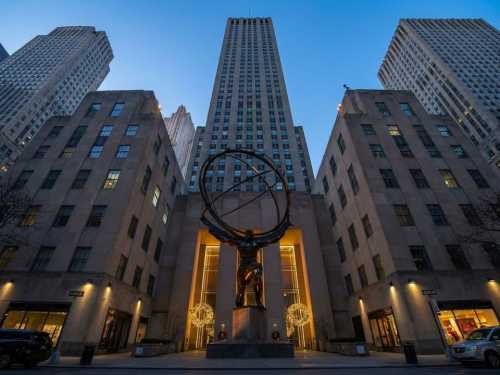
The name Rockefeller has gone down in history as a synonym for incredible wealth. When people hear it, they immediately think of money, power, and success. All thanks to the founder of one of the most influential empires of the last century and the first officially registered dollar billionaire in history, John Davison Rockefeller.
Before him, the concept of a “billionaire” did not actually exist. Rockefeller officially crossed this mark in 1916. He did not inherit an empire, but built it, having amassed a huge fortune. If we calculate his capital at the peak of his power, it was about 2% of the entire GDP of the United States. In modern money, this is equivalent to 300-400 billion dollars, which exceeds the fortune of any of the current leaders of the Forbes list. The story of this businessman still inspires and amazes entrepreneurs around the world.
First money
The future billionaire was born in July 1839 in Richford, New York. He grew up in a family that could hardly be called ordinary. His mother, a devout Baptist, was the embodiment of discipline and thrift. But his father, William “Devil Bill” Rockefeller, was her complete opposite – a conman, seller of “miracle elixirs” and a loan shark who often disappeared for months, leaving his family to fend for themselves.
It was his father, despite his reputation, who gave John his first, albeit brutal, lessons in business. “Devil Bill” would say bluntly, “I deal with my boys and rip them off. I want to make them sharp.” John quickly learned the trade of buying and selling, and at the age of seven he earned his first money by raising turkeys for sale and helping his neighbors dig potatoes.
He recorded every cent in his little ledger, which he called “Ledger A.” This was taught to him by his mother, who was forced to save skillfully because of her husband's adventures. She instilled in her son the principle that he followed all his life: “Work and save.” Thanks to this discipline, by the age of thirteen, John had saved a good amount. It was then that he made his first financial deal: he lent fifty dollars to a farmer he knew at 7.5% per annum. When a year later he received the money with interest, he was struck by the thought: “Money can work for me, and not I for it.”
Searching for yourself
After school, the young man did not aspire to get a classical university education. He was a practical man and wanted to start earning money as soon as possible to help his mother. Instead of a long study, he entered the Folsom Commercial College for a three-month course in accounting and the basics of commerce. He successfully completed the intensive course, having received exactly the knowledge he considered necessary.
After the courses, a grueling job search began. It took six weeks before John was hired as an assistant accountant in a small real estate and transportation firm, Hewitt & Tuttle. Thanks to iron discipline and perseverance, he quickly proved himself and rose to the position of manager. But when his predecessor resigned, the boss offered the young Rockefeller a ridiculous salary, three times less.
John, offended by this injustice, refused to work for pennies and left Hewitt & Tuttle. It was his first and last paid job. From that day on, he decided to work only for himself.
The beginning of the empire
After his release, Rockefeller almost immediately found a partner – an Englishman Morris Clark. Having combined their capital (John invested his own saved $800 and borrowed another $1000 from his father), they founded a company for the sale of agricultural products. With the beginning of the American Civil War, the demand for provisions for the army increased sharply, and their business went uphill.
Trade brought good profits, but Rockefeller's ambitions demanded more. In those years, oil fever swept the country, and kerosene lamps became the main source of light. John saw the future in this. His acquaintance with chemist Samuel Andrews, who knew how to effectively process crude oil into pure kerosene, was fateful. Rockefeller understood: the real money was not in oil production, but in its processing and logistics.
In 1870, he founded the Standard Oil Company. His genius lay not only in production, but also in ruthless cost optimization. Rockefeller negotiated huge discounts with the railroads in exchange for guaranteed gigantic volumes of transportation. Having received the lowest price for transportation, he could sell kerosene cheaper than anyone else. Competitors who paid full price for transportation could not stand the pressure and were forced to either go bankrupt or sell their plants to Rockefeller for next to nothing.
The first billionaire in history
Using this tactic, Rockefeller absorbed dozens of competitors. By 1880, his Standard Oil controlled about 95% of all oil business in America, becoming the largest and most powerful corporation in the world.
His monopoly caused public outrage, and in 1890 the government passed the Sherman Antitrust Act. However, the real blow to the empire was dealt much later. It was not until 1911 that the US Supreme Court ordered the forced division of Standard Oil into 34 independent companies. The government believed that this would destroy Rockefeller's monopoly. However, the incredible happened: since John retained controlling stakes in each of these new firms (among which were future giants Exxon, Mobil and Chevron), the total value of his assets after the division doubled. This “loss” in court made him even richer.
It was then that his personal fortune began to grow rapidly, making him the first dollar billionaire.
At the same time, he did not become a spendthrift. He bought real estate, had a personal golf course, but never flaunted his wealth. Following the advice of his mother and his religious beliefs, he gave 10% of his income to charity from his first earnings. Over the years, these amounts turned into astronomical amounts. Rockefeller actually created a system of modern strategic philanthropy, founding the University of Chicago and the Institute for Medical Research. During his lifetime, he donated more than $ 540 million.
John Rockefeller achieved everything he dreamed of. He lived a long life and died at the age of ninety-seven, leaving behind not only a vast fortune but also a legacy that forever changed the world of business and philanthropy.






